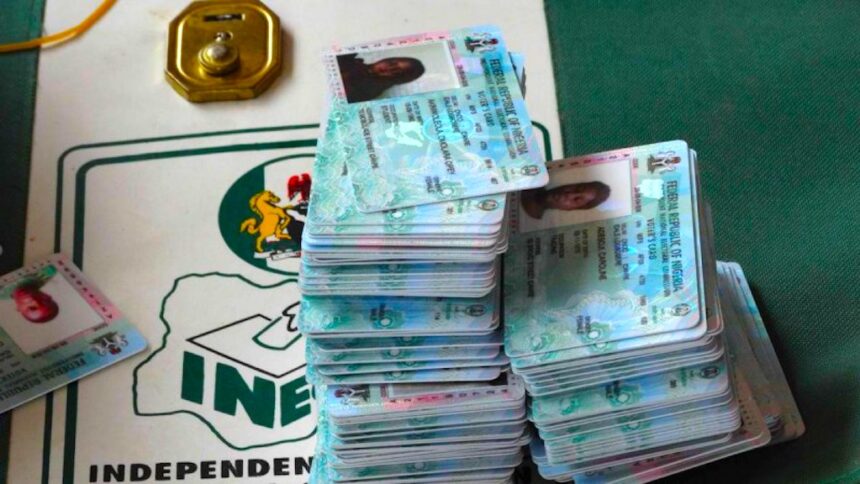- Lawmakers propose amendment to the Electoral Act making PVC optional in future elections.
- The amendment cites BVAS limitations, allowing voters to print voter cards using their NIN or passport.
- The bill also seeks to make electronic transmission of results mandatory for credibility.
- It introduces new penalties for officials handling unstamped or unsigned ballot papers.
Members of the National Assembly are proposing a major amendment to the Electoral Act that would make the use of the Permanent Voter Card (PVC) optional for voting in future elections across Nigeria.
The proposal, currently being considered in the draft amendment to the 2022 Electoral Act, aims to update Sections 18 and 47 to reflect the realities of the Bimodal Voter Accreditation System (BVAS), which reportedly does not recognise the microchip embedded in PVCs.
ATTENTION: Click “HERE” to join our WhatsApp group and receive News updates directly on your WhatsApp!
READ ALSO: ASUU: We’re Victims of Government’s Inaction — Piwuna
According to the draft amendment, registered voters would be able to download and print their voter cards whenever needed, using their National Identification Number (NIN), Nigerian birth certificate, or passport as valid identification for registration.
The proposal explains that this change would eliminate the widespread buying and selling of PVCs and reduce electoral fraud. It also suggests deleting Section 22 of the Act, which currently mandates the use of PVCs.
The Joint Committee on Electoral Matters held a public hearing on the proposal, where several experts and civil society groups gave their input. Many welcomed the amendment, arguing that it would simplify the voting process and make elections more inclusive.
One of the major concerns discussed was the BVAS system, which faced several technical hitches during the 2023 general elections. Reports of fingerprint and facial recognition failures, especially in rural areas with poor internet connection, raised doubts about its reliability.
The proposed amendment also seeks to strengthen result transmission by modifying Section 60(5). Under the new provision, presiding officers would be required to transmit results both electronically and manually, ensuring transparency in the electoral process.
Akin Akingbolu, a representative of Yiaga Africa, said the proposed reform is a welcome development. He stressed that mandatory electronic transmission of results would deepen election credibility and ensure that every vote counts.
READ ALSO: PDP Postpones 103rd NEC Meeting Amid Growing Internal Crisis
In another key change, Section 71(2) introduces a penalty for any presiding or collation officer who distributes unstamped or unsigned ballot papers and result sheets. Offenders would face at least one year in prison, a fine of not less than ₦1 million, or both.
Observers believe that these amendments, if passed, could mark a major shift in Nigeria’s electoral system, making it more transparent, efficient, and accessible.

